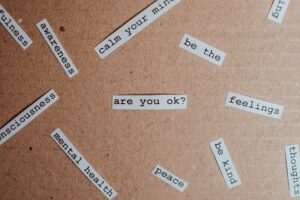“Mental illness is nothing to be ashamed of, but stigma and bias shame us all.” – Bill Clinton
Friends, family, coworkers, and society at large can all exert pressure on people due to the stigma associated with mental illness. It may make it more difficult for those who are suffering from mental illness to seek support, integrate into society, and live happily and fulfilled lives.
When people with mental illnesses or those who seek treatment for emotional discomfort, including anxiety, depression, and bipolar disorder among others, are stigmatized by society, it is said to be a mental health stigma.
Preconceptions, which are frequently untrue, unfavorable, and hurtful depictions of entire groups of people, can contribute to the stigma around mental health. They enable a person to quickly assess others based on a few defining traits, and then they generalize their conclusions to include everyone in that group. For instance, preconceptions about people who have depression or anxiety sometimes portray them as lazy or cowardly. Several people worry about being called “crazy” for merely seeking therapy support. All of these stereotypes are inaccurate and hurtful, and prevent individuals from receiving the care they require.
The idea that people with mental illness are violent or harmful has been politicized frequently. A limited percentage of those who suffer from mental illness do, nevertheless, engage in violent behavior. They are more likely to become victims of crime, making them a group that needs to be protected rather than feared.

Photo source: Vie Studio
Why is stigma associated with mental health?
The stigma associated with mental illness can originate from a variety of places, including personal and social as well as the actual mental illness itself, which may lead a person to behave differently than is deemed to be the norm in a given society or culture. Increased stigma can result from a variety of factors, including ignorance, fear, and education gaps.
Effects of stigma surrounding mental health.
An individual with a mental health illness may have worsening symptoms and find it difficult to rehabilitate if they are stigmatized. If an individual is stigmatized, they could be less likely to seek assistance. The manifestation of stigma may not be extreme or include forceful movements. It might manifest itself through the terminology individuals use to characterize mental illnesses or those who are suffering from them. It can be difficult for people to hear language that is cruel or dismissive in this situation. As a result, they could feel alone, have low self-esteem, feel ashamed, have worse symptoms, and possibly even lose their jobs.
How to combat the stigma surrounding mental health.
Since the majority of stigma stems from ignorance and unfounded fear, public education to raise awareness of mental illness is essential. When discovering that a friend or relative is coping with a mental illness, it is critical to check trustworthy sources of information on mental health issues and gain more knowledge. If they believe stigma affects their capacity to deal with day-to-day situations like job, housing, or health, they might also think about hiring an advocate.

Photo source: Pavel Danilyuk
It is difficult to overcome the complicated and well-documented problem of stigma. There are, however, actions that a person who is dealing with mental health stigma can do, like locating an activist who can help them with professional and financial concerns. By telling their stories, they can also help others better understand mental health issues. We can also help reduce the stigma associated with mental illness, which is essential, by enlightening ourselves on mental health concerns and promoting awareness so we can better understand how these disorders affect those who live with them and assist in debunking widely held myths and stereotypes in both ourselves and others.
